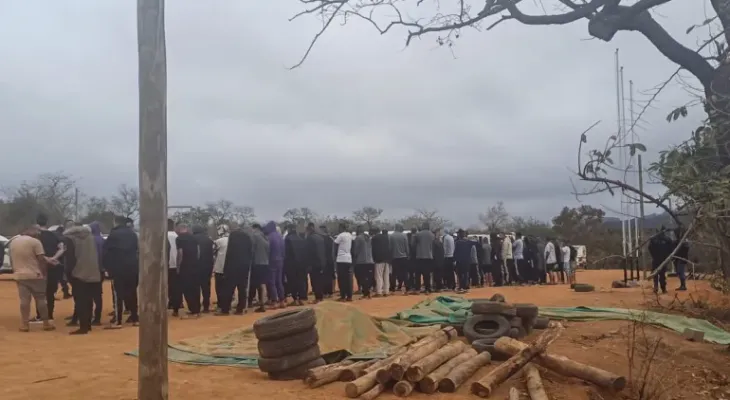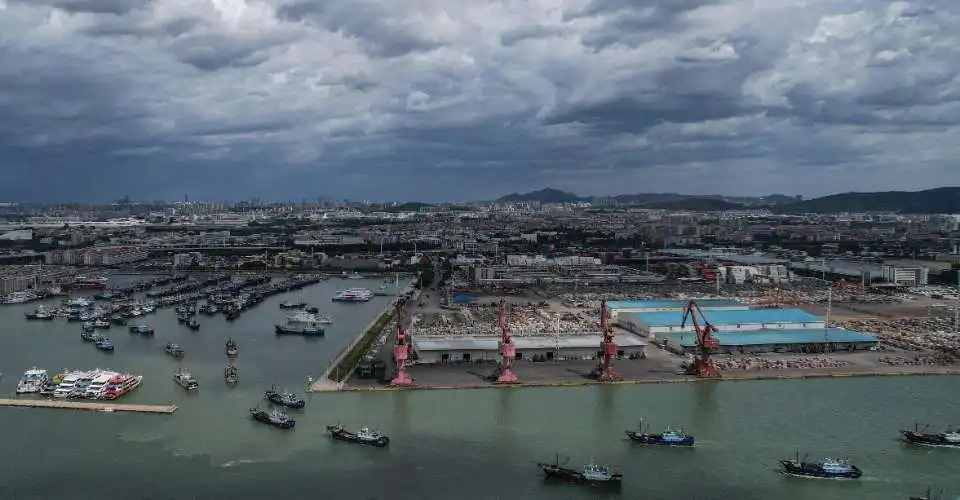
The global financial organisation will consider providing the assistance after representations by neighbouring India.
Meanwhile, a leading rating agency warned Sri Lanka will see “a series of defaults” on its foreign debts after officials said it would halt payments.
It comes as Moody’s downgraded its assessment of bonds sold by Sri Lanka.
Sri Lankan officials, led by finance minister Ali Sabry, are in Washington this week for talks with the IMF as the South Asian nation faces its worst economic crisis in more than 70 years.
At a meeting, the IMF “commended on the steps already taken by [Mr Sabry] to mitigate the financial situation in Sri Lanka,” the country’s finance ministry said in a statement.
“[The] Minister of Finance has made a request for a Rapid Financing Instrument (RFI) with the IMF. IMF has subsequently informed Minister Sabry that India had also made representations on behalf of Sri Lanka for an RFI,” it added.
“It had been communicated that IMF will consider the special request made despite it being outside of the standard circumstances for the issuance of an RFI.”
A RFI is usually granted to an IMF member nation with “urgent” funding needs, because of sharp commodity price rises, natural disasters or conflicts. It does not require the country to have a plan to restructure its economy.
Last week, the Sri Lankan government said it would temporarily default on $35.5bn (£27.3bn) in foreign debt as the pandemic and the war in Ukraine made it “impossible” to make payments to overseas creditors.
On Monday, Sri Lanka’s finance ministry confirmed that it would miss $78m in interest rate payments on international sovereign bonds.
A spokesperson told the BBC this was “in line with the government policy decision” to pause foreign payouts.
If the overdue interest rate payments are not made within a 30-day grace period, it would mark Sri Lanka’s first default on its foreign debt since its independence from the UK in 1948.
Asked if payment would be made within the grace period, the spokesperson said: “A decision in this regard will be published in due course”.
The country has seen mass protests in recent weeks as it suffers food shortages, soaring fuel prices and major power cuts as its reserves of foreign currencies are running low.
The latest rating from Moody’s suggests that overseas bonds issued by Sri Lanka are “likely in, or very near default”.
The rating agency said the country’s move to stop some payments “will lead to a series of defaults with the first coupon payments for the government’s international bonds coming due today, April 18, 2022.” A coupon is the interest payment due on a bond.
Moody’s added that the non-payment was “unlikely to be cured during the grace period”, as a debt restructuring programme with the IMF “will take time”.
Last week, two other major credit rating agencies also warned that Sri Lanka was on the brink of defaulting on its debts.
Credit ratings are intended to help investors understand the level of risk they face when buying a financial instrument, in this case a country’s debt – or sovereign bond.
International sovereign bonds make up the largest share of Sri Lanka’s foreign debt.
They are held by countries including China, Japan and India as well as major investment firms such as BlackRock, UBS and Allianz.
Meanwhile, the Colombo Stock Exchange is scheduled to remain closed all this week, due to the “present situation in the country”.






